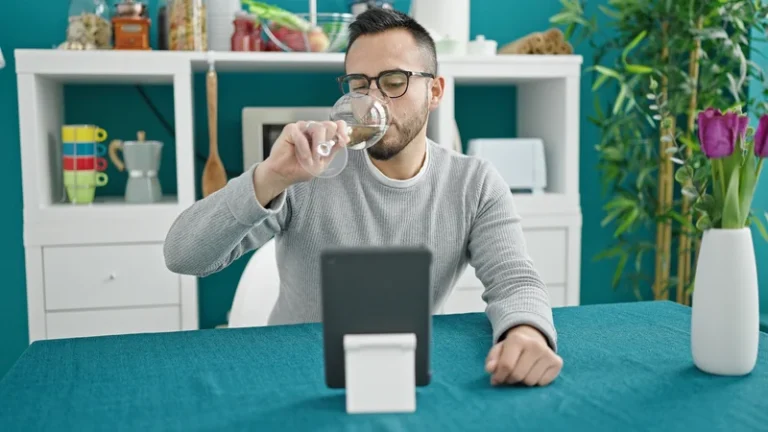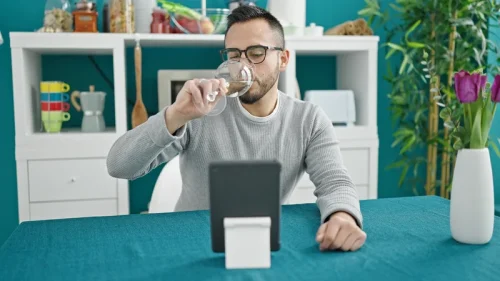What Helps With Alcohol Withdrawal? 18 Tips
Bejeweled Spiele & Games Für nüsse En bloc Gerieren Nach Bigspiele De
May 10, 2022Darmowe Machiny Do Konsol W kasyna z paysafecard Telefon Wyjąwszy Logowania
May 12, 2022What Helps With Alcohol Withdrawal? 18 Tips

Regularly visualizing how these practices fit into your routine helps your brain anticipate challenges and overcome them. Studies have shown that mental rehearsal improves the likelihood of sticking to new habits by helping you mentally prepare for obstacles and build confidence. That’s why in my work, we incorporate mental rehearsal techniques to help you practice new behaviors and allow healthier habits to take root. What’s incredible about the relaxation response is how uncomplicated it is to activate. It doesn’t require any special equipment or extensive training—just a few moments of focused breathing or mindfulness can set the process in motion.

What to know if you’re a casual drinker

Know that your provider will be there to support you, not to judge you. A big goal of alcohol detox programs is to build motivation for addiction recovery, discuss treatment options, and make appropriate referrals. There is an often-underused https://ecosoberhouse.com/ option of medically supervised outpatient detox where someone is prescribed medications for alcohol withdrawal to take at home. Alcohol withdrawal can have serious consequences, including death. Roughly 10% of people undergoing detox treatment experience severe alcohol-withdrawal symptoms.
Symptoms of tapering off alcohol

It pulls you out of a reactive state of mind and into a proactive state, which can be a powerful tool in helping treat alcohol withdrawal. A cold shower can help you physically reset if you are experiencing strong urges to relapse. It can help clear your mind and has many other great benefits beyond helping you deal with alcohol withdrawal. It may also help with hot flashes that can occur during alcohol withdrawal. An effective coping technique is to “fast forward” your relapse fantasy. Instead of thinking about the momentary relief that will come with the drink, think beyond that to the inevitable pain that will come after.
- Tapering off alcohol helps some people start their recovery journeys.
- In general, going through withdrawal at home should be avoided unless your doctor recommends it.
- Symptoms of alcohol withdrawal tend to peak 24 to 72 hours after your last drink.
- When someone uses alcohol or drugs regularly, their body gets used to the substance and changes the way it works to compensate for the effects.
- A cold shower can help you physically reset if you are experiencing strong urges to relapse.
Alcohol Detox
Behavioral health treatment for alcohol problems is often (but not always) covered by insurance. In the United States, most states have low-cost or free rehabilitation programs for those who are uninsured. There are many support options available that can help guide you through alcohol withdrawal, as well as abstaining from alcohol after withdrawal. People who drink daily or almost every day should not be left alone for the first few days after stopping alcohol. Withdrawal symptoms can quickly go from a bad hangover to a serious medical situation. Moderate or binge drinkers can likely quit alcohol on their own.
Patients are closely monitored for any complications, and adjustments to the treatment plan can be made quickly if needed. Finally, some people believe they can only be successful in their recovery if they start the detox process in an inpatient treatment program or hospital. But multiple studies show that the detoxification setting itself does not influence overall treatment outcomes. By the time you’ve completed your first week of detox, many of the withdrawal symptoms alcohol detox will begin to taper off. While some symptoms may persist for a few weeks, most of them are minor and can be treated with medication. Call now to connect with a treatment provider and start your recovery journey.
Hydration is also important, so drinking plenty of water and avoiding caffeine is advised. Some people find that smaller, more frequent meals help if nausea is an issue. A good diet won’t lessen withdrawal effects but will support your body’s ability to deal with them. It can help you reach goals and can minimize some of the unpleasant and severe symptoms of alcohol withdrawal. Whether you’re sober curious, know for sure you’re ready to quit, or fall somewhere in between, Dr. Streem shares advice for how to stop drinking.
Detoxing From Marijuana

But treatment varies based on the severity of alcohol withdrawal and the likelihood that it could progress to severe or complicated withdrawal. It can be helpful to make a plan ahead of time for how to handle a relapse. For example, some people choose to write a list of reasons why they want to stop drinking alcohol, and revisit the list to remind themselves after a relapse. You may want to speak with a loved one or therapist about a strategy to prevent relapses from happening.
Outpatient Alcohol Detox
Many people also believe that if they’ve tried to detox before, it means they’ve failed. However, Addiction is a chronic condition, and recurrence is often part of the recovery journey. Every attempt to stop using alcohol or substances can teach you something new about what works or doesn’t work for you. Detox is not a “one-size-fits-all” experience, and individualizing the approach is key. As you approach the end of the first 24 hours of detox, symptoms may become increasingly severe.
Steps
But quitting on your own can pose risks to your health and is unlikely to be successful. Rehabilitation facilities can help you on your path to sobriety by addressing alcohol withdrawal symptoms and becoming involved in sober living support groups, like AA. Medications are often used to manage the symptoms of alcohol withdrawal safely. Benzodiazepines, such as diazepam (Valium) or lorazepam (Ativan), are commonly prescribed to reduce withdrawal symptoms and prevent complications like seizures. Other medications might include anticonvulsants, anti-nausea drugs and sleep aids, depending on individual symptoms and medical history.
- She supports individuals who long for a better relationship with alcohol, helping them learn to drink less without living less.
- Detox is the crucial first step toward recovery, but it doesn’t have to be a scary or solitary experience.
- This article discusses alcohol withdrawal, its symptoms, and potential complications.
- A community of understanding and empathetic people can help you recover.
- Reducing your intake by 10% per day can reduce the likelihood of withdrawal symptoms.
Alcohol causes serious changes in the brain, and prolonged symptoms such as sleep problems, mood changes and fatigue may take months to overcome, according to the U.S. The amount of time it takes to detox from alcohol depends on several factors, including whether you’re detoxing at home or with medical supervision. Detoxing at home usually takes longer because you should be cautious to avoid serious complications. You’ve learned that your body has a natural ability to relax without alcohol, but knowing these techniques is only the first step.
